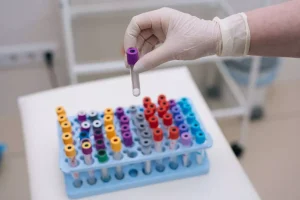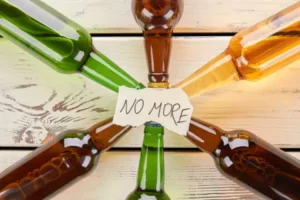Can People With Diabetes Drink Alcohol?
Sober living
Can People With Diabetes Drink Alcohol?

If you are following a calorie-controlled meal plan, one drink of alcohol should be counted as two fat exchanges. If you have diabetes, drinking alcohol may cause your blood sugar to either rise or fall. People with diabetes have to be very careful when it comes to drinking alcohol. It is a good idea for them to talk with a doctor so that they thoroughly understand the risks involved. Alcohol consumption can interfere with blood sugar as well as the hormones needed to maintain healthy blood sugar levels.
Does Alcohol Increase Your Risk of Type 2 Diabetes?
- Glycogen is a large molecule that consists of numerous glucose molecules and serves as a storage form of glucose in the tissues, particularly the liver.
- The following tables contain information from the Department of Agriculture.
- Each alcoholic beverage takes between 1 and 1.5 hours to finish processing in the liver.
- Alcohol takes longer to be absorbed into your bloodstream if you have food in your stomach.
- Instead, consider having cocktails mixed with diet beverages, seltzer, or club soda.
Both hormones are produced in areas of the pancreas called the Islets of Langerhans, which, quite literally, are “islands” of hormone-producing cells in a “sea” of digestive enzyme-producing cells. Among other cell can diabetics get drunk types, the Islets of Langerhans include an inner core of insulin-producing beta cells surrounded by a layer of glucagon-producing alpha cells. When people with type 2 diabetes drink alcohol, it comes with risks.
- Talk to your doctor if you have any questions, which may help you make an informed decision.
- Ideally, you’ll have a friend or a loved one with you who’ll be able to help you.
- The ADA does not forbid a person with diabetes from consuming alcohol, but they do not advise it either.
- Choose foods that contain carbohydrates so that you have some glucose in your system (meaning, you will be at lower risk of having low blood sugar).
- After you drink alcohol, your blood sugar levels can drop up to 24 hours later.
- This organ stabilizes glucose levels by storing carbohydrates and releasing them into the bloodstream between meals and overnight.
Can people with diabetes drink alcohol?
Some sources (including Diabetes UK ) advise strict carbohydrate management, perhaps even chips or pizza, if a large amount of alcohol has been consumed. If you have diabetes and are wondering how much alcohol you should drink, it is worth reading the following list to see how much alcohol is contained in each type of drink. If you or a loved one has been diagnosed with type 2 diabetes, join DiabetesTeam today.
Other Risk Factors for Diabetes

Perhaps some have health conditions that are incompatible with alcohol. People with diabetes who plan on drinking alcohol should check their blood sugar levels before and up to 24 hours after drinking. They should also check these levels at bedtime to ensure that they are stable before sleeping. For many people, the occasional glass of alcohol does not pose a problem. However, for people with diabetes, alcohol consumption can affect blood sugar levels. Alcohol, including wine, may increase the risk of dangerously low blood sugar, even in people who are not taking insulin or other diabetes medications.

However, Lin and colleagues (1995) reported that the LDL cholesterol in alcoholics exhibits altered biological functions and may more readily cause cardiovascular disease. Those observations suggest that the reduced levels of vitamin E in alcoholics actually may have harmful long-term effects. So yes, you can still drink, but you need to be aware of how it can affect your body and how to manage this. For example, drinking can make you more likely to have a hypo, because alcohol interferes with your blood sugar levels. It can affect your weight too, as there can be a lot of calories in alcoholic drinks. Certain diabetes medications, such as insulin and sulfonylureas, can increase your risk of hypoglycemia, and alcohol further affects that risk.

The liver normally re-incorporates free fatty acids into triglycerides, which are then packaged and secreted as part of a group of particles called very low-density lipoproteins (VLDL). In patients with ketoacidosis, however, the liver metabolizes the incoming free fatty acids in an additional, unusual way. Under the influence of excess glucagon, some of the free fatty acids are converted to ketone bodies and secreted into the blood, causing severe health consequences.
Type 2 diabetes, which in most cases develops in people over age 40, has a somewhat different pathophysiology than type 1. People with type 2 continue to produce insulin in early disease stages; however, their https://ecosoberhouse.com/article/alcohol-and-dopamine-how-does-it-affect-your-brain/ bodies do not respond adequately to the hormone (i.e., the patients are resistant to insulin’s effects). Thus, insulin does not lower blood sugar levels to the extent that it does in people without diabetes.
How does alcohol lower blood sugar?

This is because the liver is where excess glucose is stored in a form called glycogen. In most cases, people with type 2 diabetes can drink alcohol in moderate amounts. As you may well know, living with type 2 diabetes often means cutting out or cutting back on foods and beverages that can affect sugar (glucose) levels in the blood. If you never or rarely drink alcohol, you’re not alone—in fact, people with diabetes drink about half as much as other adults. Maybe their doctors cautioned them that drinking and diabetes don’t mix.
Clinical experience indicates, however, that a testosterone deficit rarely is the sole reason for impotence in diabetic men, because treatment with testosterone rarely restores potency in those men. Thus, both neuropathy and vascular disease likely play significant roles in impotence in diabetic men. Depending on what you like to drink, there can be a lot of calories in alcohol. But the size of the glass and type of alcohol affects the number of units, so it’s best to check the guidelines at Alcohol Change UK.

